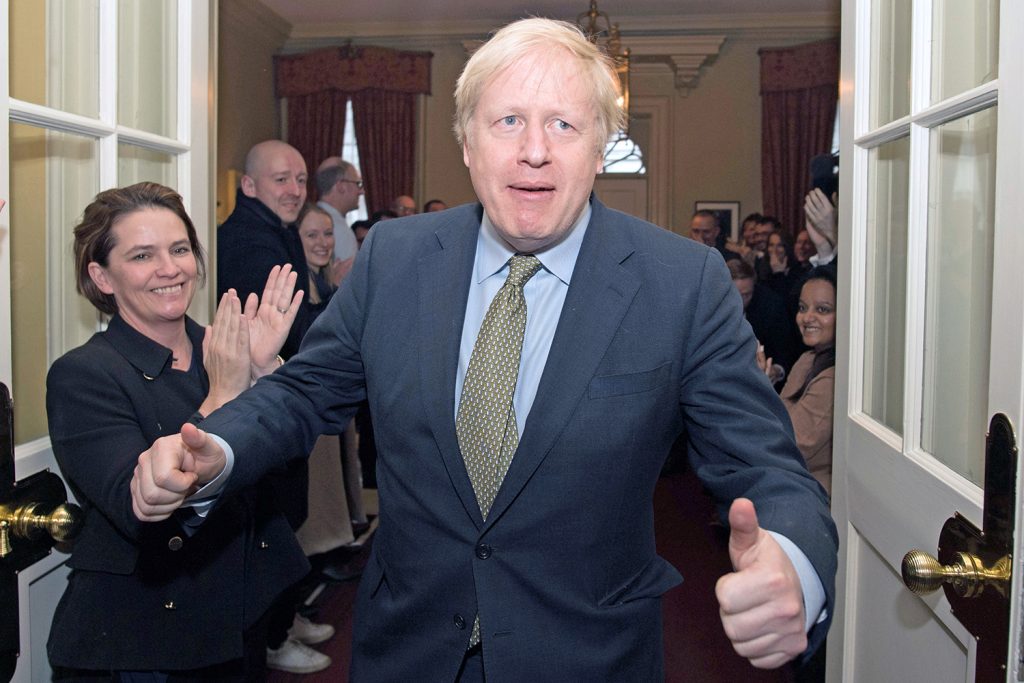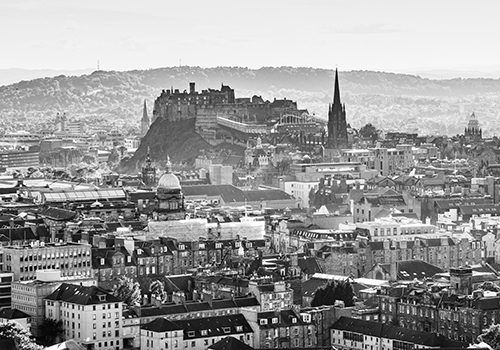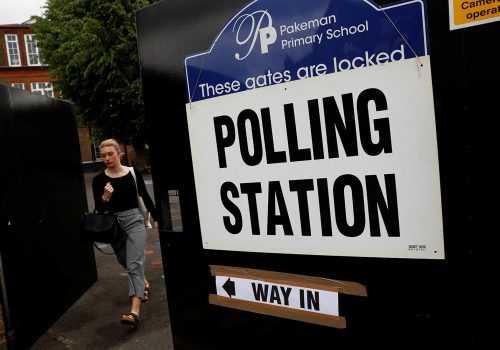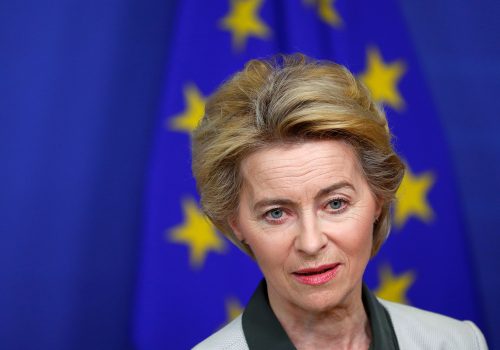British Prime Minister Boris Johnson led his Conservative Party to a major victory on December 12, flipping forty-seven seats to give him a comfortable majority in the next Parliament. Johnson—who pushed for the early election after his withdrawal deal with the European Union failed to pass Parliament—vowed on December 13 that his new government “will get Brexit done on time by the 31st of January, no ifs, no buts, no maybes.”
The Labour Party lost fifty-nine seats and the Liberal Democrats shed one seat, handing the Conservatives their largest parliamentary majority since 1987. Labour leader Jeremy Corbyn has announced his intention to resign and Liberal Democrat leader Jo Swinson lost her seat to the Scottish National Party (SNP)—which gained thirteen seats despite a rough night for the other pro-Remain parties.
Johnson’s first task in his new term as prime minister will be to finally pass a withdrawal agreement with the European Union, nearly eight months after the original March 29 deadline to do so. Charles Michel, president of the European Council, said that European leaders now “expect that the British parliament will vote as soon as possible on the withdrawal agreement. We are ready to start the next phase.”
Atlantic Council experts react to the Conservative victory in the United Kingdom parliamentary elections:
Sir Peter Westmacott, a distinguished ambassadorial fellow in the Atlantic Council’s Future Europe Initiative and a former UK ambassador to the United States, France, and Turkey:
“After three and a half years, the electorate was tired of non-government and susceptible to Boris Johnson’s simple message of “let’s get Brexit done.” Conservatives skillfully ensured that the prime minister was not exposed to any searching interviews or difficult press conferences. This had an impact even in traditional Labour seats in the manufacturing areas in the north of England and the Midlands—likely to be worst hit by the UK’s departure from the European single market. Some Labour voters who couldn’t bring themselves to vote Conservative took the Brexit Party option, further weakening their party’s performance.
“Much of the electorate seems to have bought the Johnson message that electing a Conservative government will mark the end of the Brexit process. In fact, it only signals the beginning of the real negotiations on Britain’s future relationship with the EU and the rest of the world.
“Despite performing well in the 2017 general election called by Theresa May, Jeremy Corbyn turned out to be a liability for the Labour Party. So did his equivocal position on Brexit. Undecided voters were more spooked by Corbyn’s hard left manifesto and the prospect of higher taxes and sweeping nationalizations than they were by the damage which Johnson’s Brexit agenda may do to the country.
“Tactical voting between the different Remain parties failed to take off and keep alive the prospect of a second referendum which would have followed from the election of a hung Parliament: it is now certain that Boris Johnson’s EU Withdrawal Bill will be approved by the new Parliament in January. There will not be a second referendum.
“Looking ahead, Boris Johnson now has a big enough majority to do as he pleases, and to choose a cabinet based on competence rather than (as of now) personal loyalty and readiness to contemplate a no-deal Brexit. The big question is what kind of Brexit he will seek to negotiate during 2020, and whether he can get the job done by the scheduled end of the transition period in twelve months’ time. “It seems as though Johnson is reluctant to go for “no-deal” having understood the damage that this would do to the UK economy, despite having felt a political need to keep the option open while seeking to marginalize hardline Brexiteers like Nigel Farage and the European Research Group (ERG) faction within his own Conservative party. He seems to be instinctively a ‘One Nation Tory’ but no-one is quite sure.
“Jeremy Corbyn’s leadership of the Labour Party is finished. This is the worst result for Labour since the 1930s. Where does the party go now? If it chooses another hard-left leader in place of Corbyn, it is likely to remain in opposition for years to come. Will pragmatism, and a desire to win, take precedence over ideology? Again, nobody knows.
“In Scotland, the SNP is resurgent, having won forty-eight of the fifty-nine seats north of the border. The party leader, Nicola Sturgeon, says voters have given a clear message to Boris Johnson that Scotland does not wish to be dragged out of the European Union against its will. Johnson says he does not intend to allow another referendum on independence, but there is a sense that yesterday’s result increases the chances of Scotland going its own way in the foreseeable future. A similar story in Northern Ireland, where the Nationalists did better than the Unionists and there is a sense that Boris Johnson’s version of the EU Withdrawal Bill weakens the link between Northern Ireland and the rest of the UK while strengthening links to the Republic of Ireland.
“Turnout was around 67 percent—two points less than in the 2017 referendum. Admittedly, it was winter (when the UK never normally holds elections). And it looks as though some Labour voters stayed home. But it still feels like a low turnout for what was widely billed as the most important general election in recent British history.”
Frances Burwell, distinguished fellow in the Atlantic Council’s Future Europe Initiative:
“Even if we assume that Johnson’s majority now means that the UK will leave the EU on January 31 based on the deal he negotiated, this is nowhere near the end of the Brexit saga. As is pointed out by my other colleagues, the UK must now negotiate a trade deal with the EU, presumably by the end of 2020—an unreasonably short time for a trade negotiation. During this transition period, EU rules will continue to apply, so we will not yet see the impact of Brexit. Without the pressure of long lines of trucks waiting to clear customs at Calais and Dover, the transition period may not supply the needed impetus to conclude a trade deal in short order, nor push the Johnson government to request an extension by mid-summer 2020, as required.
“Nor is the situation yet entirely clear for the beginning of real trade talks between the United States and the UK. Although the UK has said it will leave the EU customs union and the single market, Northern Ireland will see some border checks and alignment with single market rules on some products. How this differentiation between Northern Ireland and the rest of the UK will play in trade agreements apart from that with the EU is unclear. As for the US-UK agreement, we can expect much good feeling and many positive statements between Prime Minister Johnson and US President Donald J. Trump, especially since both men are prone to vague declarations of success. But the actual negotiations are likely to be very difficult. A scoping exercise has been going on for some time, identifying areas where quick progress can be made. The United States will undoubtedly push for a relaxation of some EU rules, especially on GMOs, pesticides, geographical indicators, and other issues. Whether the UK will stick more closely to EU regulatory norms or agree to US demands is unclear. What is clear is that the British public is much more “European” in its regulatory outlook, and already views a US trade deal with suspicion, as demonstrated by public concerns over the National Health Service being “taken over” by US companies. Keeping in mind that the value of UK trade with the United States, Japan, Australia, and Canada combined is only 40 percent of that with the EU, the Johnson government will have to think carefully about whether its priority is a close arrangement with the EU or reaching quick deals with others—this will be its major external challenge in 2020.”
John M. Roberts, UK-based senior fellow in the Atlantic Council’s Eurasia Center and Global Energy Center.
“There are massive battles ahead for the future of the UK as a ‘united kingdom’ and for the soul of the Labour Party. The election campaign was dominated by the question of a second independence referendum. The SNP wants to secure an agreement in 2020 on a referendum—and bolstered its case by winning forty-eight of Scotland’s fifty-nine parliamentary seats. The Conservatives opposed it and were heavily defeated, losing seven of the thirteen seats they used to hold in Scotland. First Minister Nicola Sturgeon, who put the issue at the top of the SNP agenda, will feel she has a mandate for such a referendum. But Boris Johnson has his own mandate—albeit one that is the result of his sweeping victory in England—and will reject such demands.
“It’s not clear that a majority of Scots want independence—although the election result and the impending departure from the EU make this increasingly probable—but the election results can be taken as a very strong statement that they do not like being told by London whether or not they can decide their own future. We may yet see a very British Catalonia problem: an attempt to hold a referendum without the consent of the Westminster government.
“Scotland and Northern Ireland, which both voted remain in 2016, saw major increases in votes for pro-Remain parties. In Scotland, the SNP swept almost everything before it, in Northern Ireland, the DUP lost ground despite eventually coming out in opposition to Johnson’s Brexit deal. In Wales, which like England voted Leave in 2017, the Conservatives gained ground but Labour remained the largest party in terms of both votes and seats.
“Johnson will want to make a success of Brexit. That means having as few obstacles as possible to trade in both goods and services with the EU so that European-related investment does not dry up and there are no major industrial collapses, notably in the automotive sector and, in Wales, in aircraft wing assembly for the Airbus.
“In particular, it means Boris has space to address the most problematic issue of all, on checks on goods travelling between Great Britain and Northern Ireland once Britain’s exit from the EU (including the one-year transition process) takes effect. The prime minister will not want to see the kind of cooperation between Republican and center-ground parties that characterized the election in Northern Ireland coalesce into a major campaign for Northern Ireland to seek unity with the Irish Republic.
“This means Johnson will likely go for the softest Brexit possible and will be quite prepared to concede points to the EU on maintenance of common standards in order to secure his trade deal by the end of 2020. But even if he wants an extension to allow for further negotiations his majority is big enough for him to override any rebels.
“Boris Johnson campaigned on the mantra of “One Nation Conservatism.” But Britain is split, its four constituent nations are leaning in different directions while there is also a massive rift within England—and a massive new battleground there as well. For the first time since the 1930s, there is real competition between Britain’s two major parties, for the English working class vote, with the Conservatives’ election victory due entirely to their success in wooing working class “leave” voters who previously identified with Labour. Johnson, who keeps stressing that he has only been in office for 130 days while ignoring the fact that his party has been in power for nine and half years, will therefore move to stress that austerity really is over and that it is time to build a new Britain. And a lot of the cash he spends will have to go on the de-industrialized areas that once voted only for Labour, but which now contain the seats that gave Johnson his crushing majority.
“Labour knows that if it is ever to regain power—and it has now lost four general elections in a row—it will have to rebuild its working-class credentials. That will be very hard for a party which saw its popularity increase in better-off areas, like London, that voted Remain in 2017. But the scale of the defeat, and the failure of Laura Pidcock, one of the most likely Corbynite prospective successors to retain her Durham seat in the old Labour heartland of North East England, means there is a good chance that the party will shed much of the negativities of Corbynism. These include Corbyn’s own failure to deal effectively with anti-Semitism in the party, his support for the IRA during the Troubles in Northern Ireland, his backing of terrorist groups such as Hamas and Hezbollah, and his liking for left wing populist leaders in Venezuela, Cuba, and (until recently) Bolivia.
“But while several of his key lieutenants may find themselves quickly purged, the essential leftwing populism that characterized Corbyn’s election manifesto will probably remain party policy, since the prime architect of these policies, Shadow Chancellor John McDonnell, looks set to be the interim leader and may yet succeed in becoming the party’s next elected leader.”
David A. Wemer is associate director, editorial at the Atlantic Council. Follow him on Twitter @DavidAWemer.
Further reading:
Image: Britain's Prime Minister Boris Johnson reacts as he is greeted by staff, arriving back at Downing Street, after meeting Queen Elizabeth and accepting her invitation to form a new government, in London, Britain December 13, 2019. Stefan Rousseau/Pool via REUTERS



